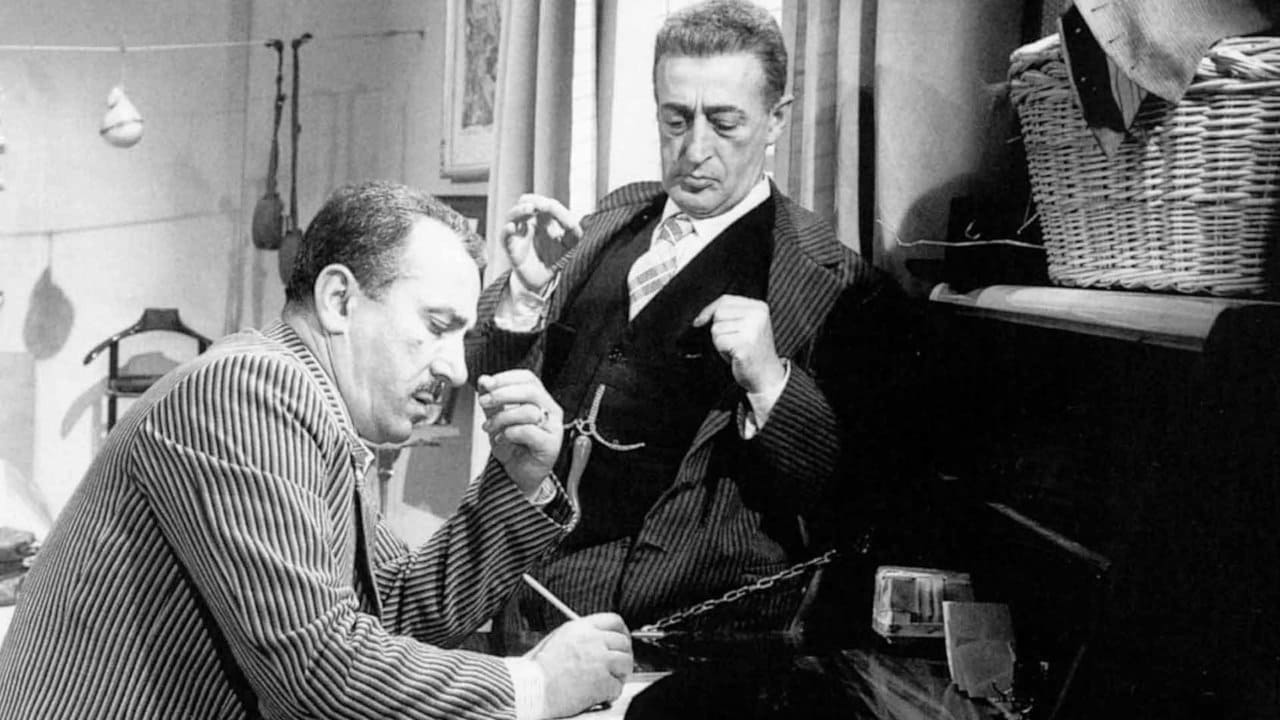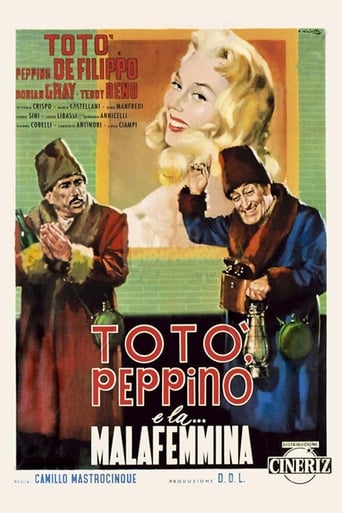Colibel
Terrible acting, screenplay and direction.
Gurlyndrobb
While it doesn't offer any answers, it both thrills and makes you think.
Freeman
This film is so real. It treats its characters with so much care and sensitivity.
Zio Pino
I'm pleasantly impressed by the positive general judgments and reviews about this magnificent film (especially as also expressed by non-Italians), the reason being the fact that it's a comedy subtly concealed by many 'dialect' puns (sometimes even extended to various European languages ...). I would like to add to all the other reviews just one important element: the one related to the song that 'inspired' this film, and that has encouraged a whole genre in the following years in Italy. The song 'Malafemmina' was written - and often sung - by Totò himself (a 'Princely' poet as well). The term 'malafemmina' has many shades, and does not necessarily have to be referred to a woman's moral habits, but in this case it should be understood more as a 'cruelty of heart' attributed to women who does not care about the evil she can do to those who happen to be caught between their 'clutches' ... The film is the result of a perfect mix of situations that allow two great products from the Italian revue theater to express their full potential and in some cases genius. Genius manifests itself only when the conditions for its emergence are created, and therefore everyone is deserving in this film, because everyone contributed to the end result: comical perfection! If something special about this movie has to remain in you, that is just the song itself: listen carefully to it, and if you do not know the language then look for a translation on the web ... And an additional advice, look for another poem of Totò's, possibly in your own language: 'a livella (ie: the bubble level) ... It will help you understand why Totò (also the 'Prince' ... of laughter) was so great.P.S. For those who aren't acquainted with the subject, it's useful to know that Totò was indeed entitled to 'princedom' in sheer terms of heraldry. That's the reason for so many allusions as of above.
petra_ste
Another Italian comedy carried by the comedic duo of Totò and Peppino De Filippo, this movie - about two idiotic uncles on a quest to face an actress who, they believe, has seduced their naive nephew - would be worthless without them.Still, these two charismatic actors and their great chemistry make the movie droll and occasionally hilarious. There are several iconic scenes which have entered the collective memory of Italian cinema: the recurrent destruction of the hated neighbor's windows; the arrival in Milan dressed up as cossacks; the ill-fated dialogue with a policeman; the memorable letter scene, ad-libbed by the actors and later homaged by Roberto Benigni and Massimo Troisi.7/10
peapulation
Funny. That's it. But if you say this to a Totò fan, they will kill you. Truth is that this film is as thin as thin as a wafer and the plot is just built around a famous song by Totò, 'Malafemmina'.The film has its moments, but when Totò and Peppino leave the screen with their hilarious gags, the film is just not interesting. But what the hell, if you want fun with no strings attached, watch it. You should enjoy it.WATCH FOR THE MOMENT - When Totò and Peppino write the letter to the 'Malafemmina', the nephew's girlfriend, telling her to leave him alone and let him study.
dirk_mdn
Nothing to add: This film is one of the masterpiece of Totò, better: one of the masterpiece of Italian comic cinema. Antonio de Curtis and Peppino's dialogues are the top of entertainment: the writing of the letter to Marisa is the most famous sketch of Italian cinema. The plot is simple, but no one care. This movie will make you laugh for two hours but also reflect about social problems of Italy after the World War II especially what concern the restrict mentality of the country people.

